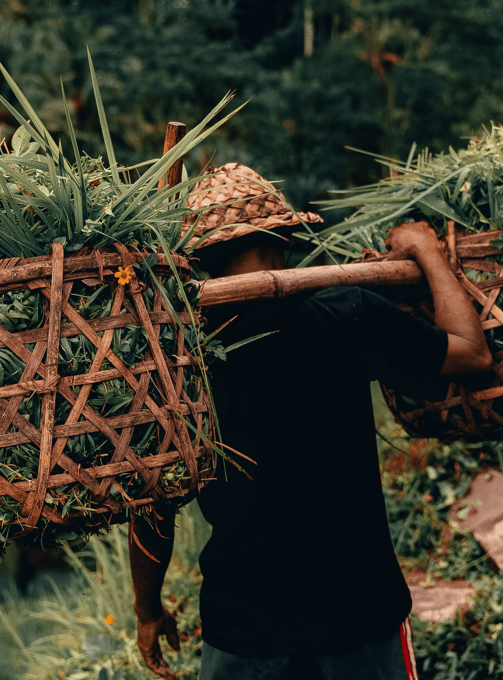Tree Free Pulp & Paper Production
Our commitment to produce Sustainable Pulp and Paper
Our unwavering commitment to sustainable paper and pulp production is not just a principle; it's an actionable plan. Since 2022, our foundation has strategically stockpiled the necessary supplies. With the forthcoming commercial plantation and the diligent cultivation of our bamboo and sorghum resources, we are scheduled to commence harvesting and pulp with paper production by 2027.
Our vision extends beyond our organization. We aspire to be a trailblazer in the journey towards sustainable pulp and paper production, with the hope that the expansive national paper industry will follow our lead. By starting with an initial production capacity of one metric ton per day, we will consistently scale up our operations year by year.
As our raw material stockpile grows, so too will our daily production rates, allowing us to effectively meet the increasing demand for sustainable tissue products in the nation. This isn't just a commitment; it's a concrete plan in action, and it's driving the transformation of the paper industry towards a greener, more sustainable future..


Bamboo and sorghum as eco-friendly Agroforestry resources
Our commitment reducing our environmental impact
Bamboo and sorghum, as eco-friendly resources, play pivotal roles in our mission to promote sustainable and responsible agriculture. Bamboo, with its unique property of continuous growth after partial and rotational harvesting, stands as an exemplary source of eco-friendly raw material. By selectively harvesting bamboo stalks, we ensure that the plant can regenerate and continue to flourish. This remarkable attribute of bamboo aligns perfectly with our goal of long-term sustainability, making it an ideal candidate for various applications, including pulp and paper production.
Sorghum, on the other hand, presents its own set of compelling advantages. This resilient crop offers the remarkable ability to be harvested three to four times in a single year, producing exceptional yields in both grain and stalks. The value of sorghum grain for food security and as a sustainable source of nutrition is indisputable. Moreover, the stalks generated from sorghum cultivation have a vital role to play in our eco-friendly resource portfolio. These sturdy stalks, when combined with bamboo, provide an eco-conscious alternative for sustainable pulp production. By harnessing the multiple harvests of sorghum and the regenerative capabilities of bamboo, we are not only mitigating the environmental impact but also driving innovation in eco-friendly agriculture and production practices.


Reducing our environmental impact
Our commitment to reducing environmental impact is aimed towards a sustainable future
Our venture focuses on producing sustainable products with a significant emphasis on bamboo and sorghum. These remarkable resources play a crucial role in reducing environmental impact. Bamboo, for instance, absorbs approximately five times more carbon dioxide (CO2) and releases around 35% more oxygen (O2) than traditional trees. This unique feature alone highlights its significance in mitigating climate change. Furthermore, bamboo cultivation only requires natural irrigation, making it an eco-friendly alternative to resource-intensive crops. As bamboo thrives organically, it eliminates the need for pesticides, contributing to a cleaner and healthier environment. Beyond its environmental benefits, bamboo also possesses soil-restoring properties, making it a valuable ally in revitalizing depleted lands and fostering sustainable agricultural practices. Additionally, sorghum acts as an efficient carbon absorber, playing a pivotal role in offsetting carbon emissions. Beyond its climate-friendly attributes, sorghum is instrumental in the phytoremediation of soils contaminated with heavy metals, purifying and rejuvenating land that might otherwise remain barren. Its remarkable carbon-absorbing capabilities contribute to a greener planet and promote landscape restoration efforts.
Sorghum, on the other hand, plays a vital role in our environmental pledge. This versatile grain is notably more water-efficient than many other crops. Furthermore, the copious stalks harvested from sorghum can be repurposed to create organic compost. Given its inherent suitability for organic farming practices, sorghum provides an ideal source for compost production as part of our sustainable approach. By embracing these remarkable resources, our venture actively supports initiatives that aim to reduce environmental impact while driving wealth creation in Indonesia.



